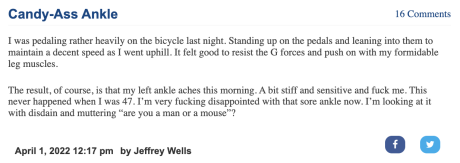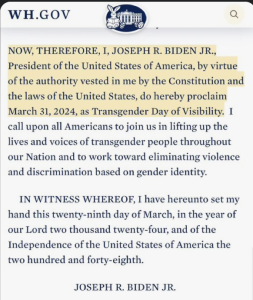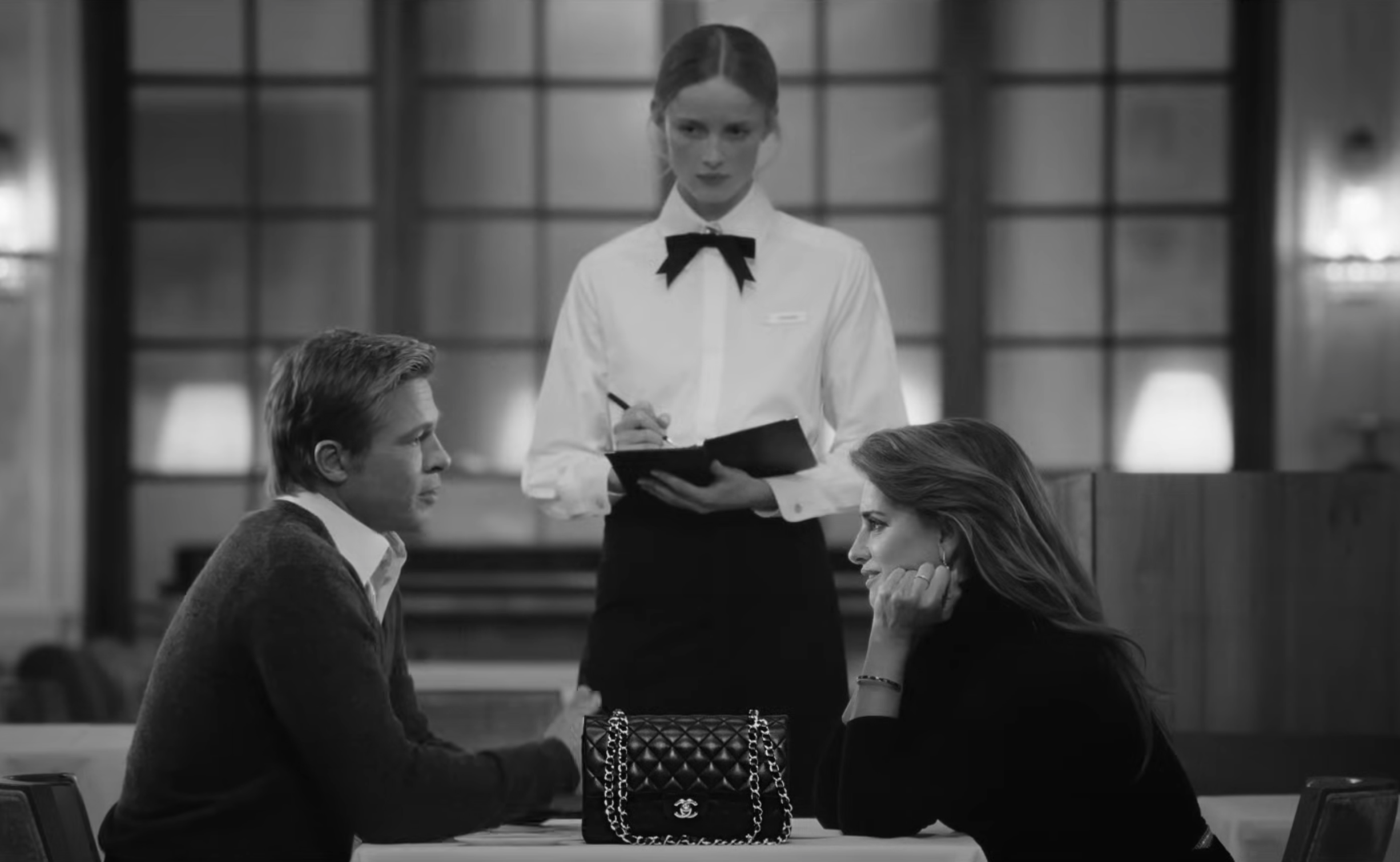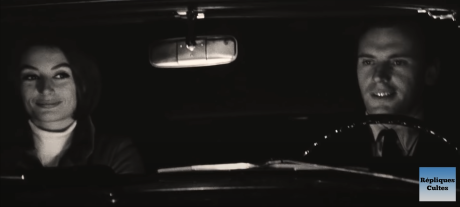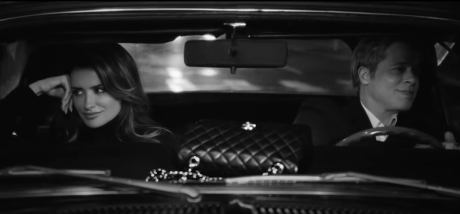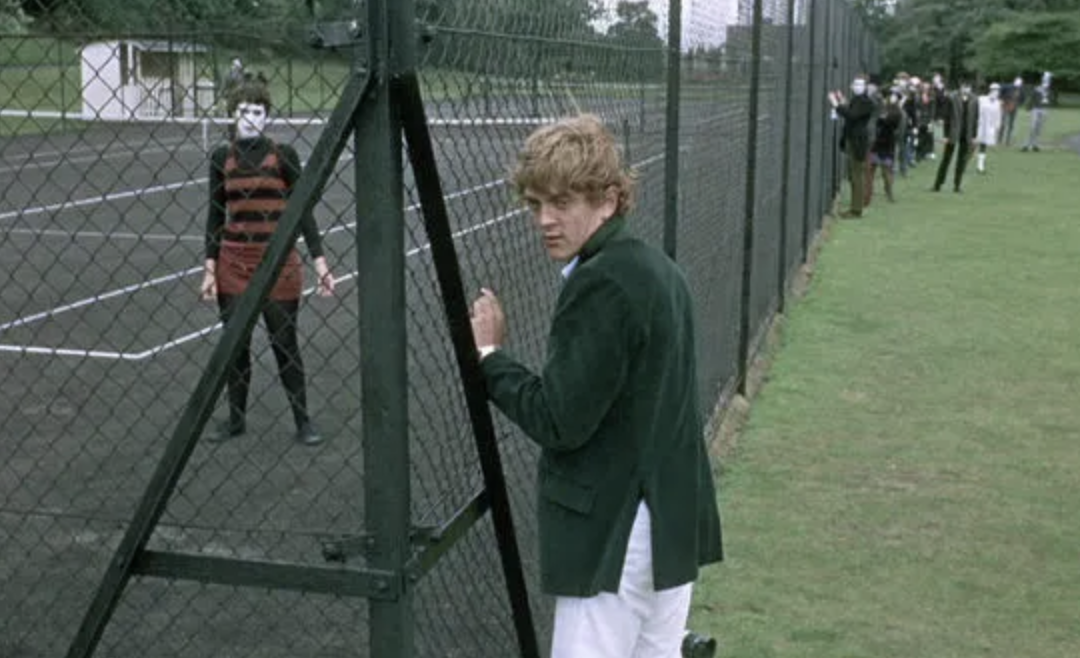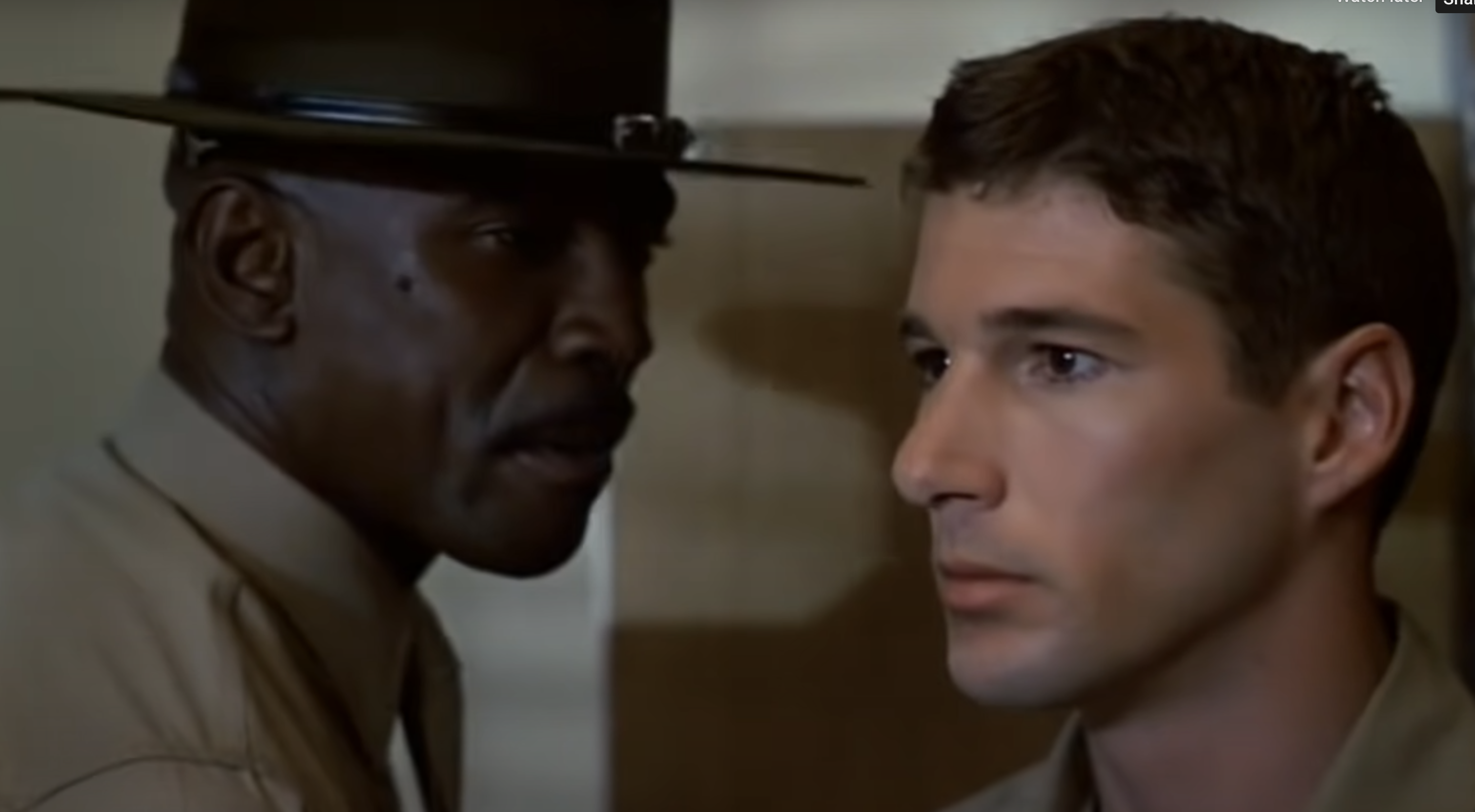Two and two-thirds years ago (8.14.21) I posted “Signature Dialogue Lines“, which got a lot of responses and then the day ended and everyone moved on.
It came back to me after I mentioned Louis Gossett, Jr.’s big signature line — “I want your D.O.R., Mayonnaise!” Most of the reader responses to the 8.14.21 mentioned classic lines from the ’40s, ’50s, ’60s and ’70s. Naturally — movie dialogue is generally understood to have been better in the old days.
I might be overstating this, but we’re not exactly swimming in great signature lines these days. We haven’t been over the last 20 or 25 years. Okay, maybe I’m being too dismissive but off the top of my head I’m not coming up with a lot of 21st Century zingers. Let me dig around…
Margot Robbie: “We’re not gonna be friends” or “I’m here to see my gynecologist.” Leonardo DiCaprio: “Good!…pick up the phone and dial.” George Clooney: “I am Shiva, the god of death.” Joaquin Pheonix: “It’s so hard to just try and be happy all the time.” Javier Bardem: “You’ve been putting it up your whole life, you just didn’t know it…call it.” Daniel Day Lewis: “I drink your milkshake…I drink it up!” Tommy Lee Jones: “And then I woke up.” Brad Pitt: “Don’t cry in front of the Mexicans.” Jonah Hill: “Are those my only two options?”
Please come up with a few more, but none from the 20th Century!
I would argue that if an alleged movie star doesn’t have a signature line or two, he/she isn’t really a movie star.
Original article: Back in the 20th Century people used to ask actors for autographs instead of selfies. Eccentric as it may sound, fans would actually carry around autograph books for this purpose. It’s been suggested that now and then hardcore fans would ask for more than just a signature — they would ask the celebrity to write a quote he/she is famous for uttering in a film.
If you were an autograph hound and you ran into Gloria Swanson back in the day, you would ask her to write “I am big…it’s the pictures that got small.”
If you bumped into William Holden, you’d ask for “if they move, kill ’em.”
If you walked into an elevator and Warren Oates was standing there, you’d ask for “lighten up, Francis.”
If you ran into James Cagney, you’d ask for “made it, ma!…top of the world!” Or perhaps “I ain’t so tough.”
What’s Sandra Bullock‘s signature line? Margot Robbie‘s? Emma Stone‘s?
Nic Cage? I strangely can’t think of one off the top.
Meryl Streep: Drawing a blank.
Bette Davis: “Fasten your seatbelts — it’s going to be a bumpy night.”
Harrison Ford: “I know.” (The Empire Strikes Back)
Jeremy Irons: “You have no idea.” (Reversal of Fortune)
Charles Grodin: “Pecan pie…they’ve got it back there!”
Warren Beatty (originally suggested by “filmklassik“): “Let’s face it, I fucked ‘em all. I go into that shop and they’re so great looking, you know. And I’m doing their hair and they feel great, and they smell great. Or I could be out on the street, you know, and I could just stop at a stoplight or go into an elevator, or I…there’s a beautiful girl. I don’t know, I mean, that’s it…it makes my day, it makes me feel like I’m gonna live forever. And as far as I’m concerned, with what I’d like to have done at this point in my life, I know I should have accomplished more, but I’ve got no regrets. Maybe that means I don’t love ’em, maybe it means I don’t love you, I don’t know. Nobody’s gonna tell me I don’t like ’em very much.”
Daily Beast contributor Tom Teodorczuk posted an interview with 45 Years costar Tom Courtenay, and about halfway through Courtenay mentions that he was recently approached by an autograph hunter asking him to sign a piece of paper underneath the words “the personal life is dead” — one of the utterances of Strelnikov, his character in Dr. Zhivago.
Back in the late ’70s I recalled running into In Cold Blood costar Scott Wilson in a West Hollywood bar. Wimp that I am, I stifled an instinct to ask for an autograph along with the words “hair on the walls” — a Dick Hickock line from Truman Capote‘s nonfiction novel.
If I could persuade Brad Pitt to write down a signature line, I’d ask him to write “don’t cry in front of the Mexicans.”
If I’d run into Marlon Brando in the ’70s, I would have asked him to write either “whatta ya got?” (a line from The Wild One) or “Don’t be doin’ her like that” (from One-Eyed Jacks).
If I’d enountered Montgomery Clift I’d ask him to write “nobody ever lies about being lonely” — a Robert E. Lee Prewitt/From Here To Eternity line.
Samuel L. Jackson: “I don’t remember askin’ you a goddam thing!”
Bruce Willis: “Yippie-ki-yay, motherfucker!” or “Welcome to the party, pal!”
Al Pacino: “You don’t get to watch my television, Ralph!”

